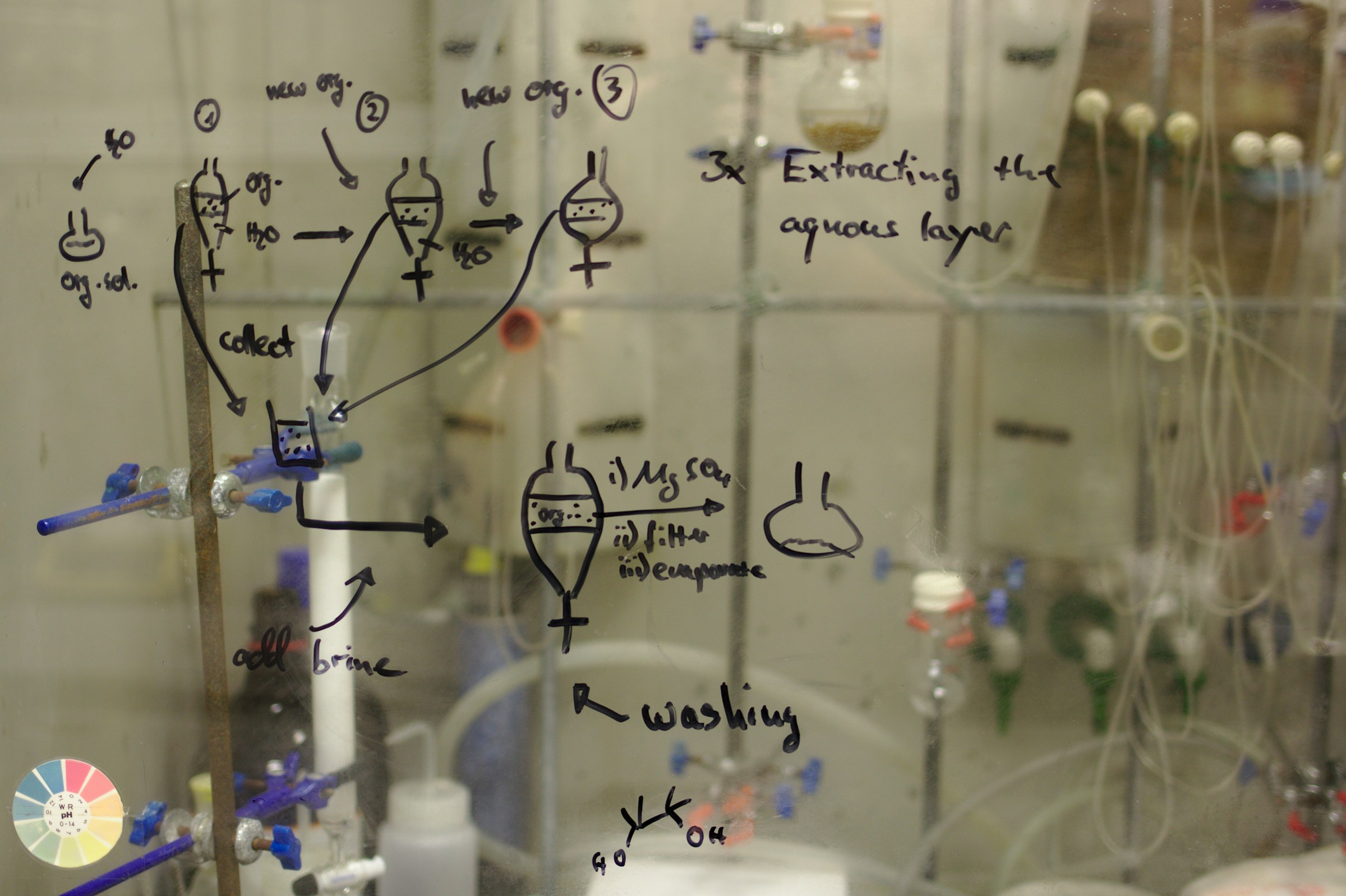Chemistry often ranks among the hardest A Levels, and A Level Chemistry is undoubtedly the hardest. When preparing for A Level Chemistry, it can feel like you're trying to decipher an alien language. With numerous topics, each with its unique concepts, terms, and applications, it's easy to become overwhelmed. For many students, this challenge leads to anxiety and panic.
If you've found yourself in this position, you're not alone. Fortunately, this guide will provide valuable insights to help you achieve an A in A-Level Chemistry. Specifically, you will learn practical tips and guidance to achieve your goals and eliminate your stress.
One of the best ways to get help in A-Level Chemistry is through online tutoring UK programs like Udemy. With personalized support from a subject expert, you can work to relieve your chemistry stress and get an A in A Level Chemistry.
9 Ways to Get an A in A Level Chemistry

1. Understand the A Level Chemistry Curriculum
To excel in A Level Chemistry, start by thoroughly familiarizing yourself with the specific curriculum your exam board follows. Every board (AQA, Edexcel, OCR, Cambridge International (CIE), or WJEC) has a unique layout and terminology for its specifications that detail everything you need to know. For instance, AQA calls their course summary “Specification at a glance,” while Edexcel uses “Qualification at a glance,” and OCR refers to “The specification overview.” They might use different words, such as “topics,” “modules,” or “areas of study,” but they essentially refer to the same content sections.
Use the specification’s contents page to create your checklist of topics. Then, apply a RAG (Red-Amber-Green) rating system, mark issues you find difficult or unfamiliar in red, those somewhat understood in amber, and topics you master confidently in green. This helps you prioritize your revision time effectively. Focus first and most on red issues to build confidence across the board before polishing the amber and green areas.
Commonly challenging topics across boards include chemical calculations, organic mechanisms, spectroscopic methods such as NMR, equilibrium concepts, electrochemistry, and transition metals chemistry. Avoid the temptation only to revise what you already know well; instead, direct your energy toward the weaker areas for maximum score improvement. Utilizing tailored revision notes specific to your exam board can ensure alignment with syllabus requirements and help you track your progress.
2. Create a Strategic Study Plan
Effective time management, achieved through a well-structured study plan, is key to mastering A-Level Chemistry. Avoid leaving revision to the last minute, which increases stress and reduces retention. Instead, use a physical calendar rather than a digital one to avoid distractions, and block out realistic study sessions interspersed with breaks and personal commitments.
Break down broad and complex topics, such as transition metals, into manageable chunks with clear goals. For example, rather than attempting to learn all aspects of transition metals, definitions, electron configurations, and ligand equations in one sitting, divide the topic into smaller parts, such as just definitions and properties, for a half-hour session.
Set achievable objectives for each session, such as memorizing key definitions or practicing related chemical equations. Additionally, creating your revision resources (summaries, flashcards, mind maps) can deepen understanding and personalize your learning approach. Keep a separate “challenge list” to record topics or concepts that consistently cause difficulty, and review it regularly to close knowledge gaps.
This structured planning, combined with periodic review, promotes efficient learning and helps prevent burnout by balancing study with breaks.
3. Use Effective Study Techniques
Many students make the mistake of passively revising by copying notes, merely rereading material, or revising topics they already know well. These activities may provide a false sense of progress, yet they don’t build lasting understanding or exam readiness. Active study techniques are far more effective. These include:
Flashcards
Great for memorizing key facts, chemical tests, definitions, or complex concepts, such as Born-Haber cycles and transition metal complexes. Use flashcards both forwards (question to answer) and backwards (answer to question) to deepen your cognitive engagement.
Mnemonics and Rhymes
While less common at A Level, they can help you recall sequences or lists, such as the reactivity series of metals.
Sticky Notes
Use color-coded sticky notes for different topics, place them around your study area, and move them regularly. This physical interaction encourages memory and can highlight trouble areas when practiced in groups.
Mind Maps
Organize related concepts visually to see connections within and between topics. Use colors and diagrams to enhance understanding, but avoid spending too much time decorating rather than studying the material.
Practice Questions and Study Groups (covered later)
These foster active recall and collaboration, critical to deep learning.
Avoid passive reading; instead, engage interactively with content to reinforce your understanding and retention.
4. Enhance Problem-Solving Skills
Calculations form a significant chunk (around 20%) of A Level Chemistry exams. These range from relatively simple to quite complex and often build on your GCSE foundation.
Familiarize yourself thoroughly with the types of calculations your exam board expects by searching “calculate” in their specification. Mark allocations often indicate difficulty, from 1-mark basics (e.g., relative molecular mass) to 4+ mark complex tasks (e.g., equilibrium constants, buffers). To improve:
- Practice clusters of similar calculation questions to identify patterns in mark schemes.
- Develop step-by-step guides for each calculation type, adding notes on variations as you encounter different question angles.
- Regularly practice calculations to build speed and accuracy.
For other challenging topics, such as organic mechanisms, NMR spectroscopy, and transition metals, adopt a strategic cycle of attempting questions, reviewing mistakes, targeted revision, and then reattempting different questions to track improvement. This iterative approach solidifies knowledge and reduces the frequency of errors.
5. Improve Exam Strategies
Simply doing past papers isn’t enough to guarantee exam success. To maximize benefits, practice under realistic exam conditions by timing yourself and adhering strictly to the official time limits. This helps you manage time effectively during the actual exam, avoiding spending too long on low-mark questions.
Break down paper sections according to their weight in marks. For example, if Section A of your paper accounts for about 20% of the total marks, allocate 20% of your time to it. Prioritize answering questions with higher marks to maximize your score. If you're stuck on a single-mark question that’s time-consuming, move on and return to it if time permits.
When answering longer questions worth multiple marks, be precise and concise in your responses. Avoid including unnecessary information solely to fill space, as this can introduce errors that may cost marks. Typically, 1-mark questions require only a keyword or brief phrase, so don’t over-elaborate. An experienced examiner’s tip: sometimes an entirely correct answer can fit within a short space, and writing more can inadvertently reduce marks. Aim for quality, clarity, and directness.
6. Review Feedback and Improve
Working through past papers and exam questions isn’t just about practice; it’s also about learning from your mistakes. After completing practice papers, make a list of all the errors or uncertainties you encountered. After a few papers, examine these lists to identify recurring topics or question types where mistakes persist.
Use mark schemes in a reverse approach, starting by studying the mark scheme and then trying to deduce the question it addresses. This reveals precisely what examiners expect and helps pinpoint your weaker areas. If you struggle to guess the question from an answer, or if your answers consistently miss key points, mark that topic as needing focused revision.
Tracking your progress through repeated cycles of practice, review, and targeted revision helps transform red and amber topics into green, thereby improving confidence and exam performance.
7. Stay Consistent and Motivated
Consistent revision can be challenging, but maintaining motivation is essential for success. Incorporate regular, scheduled breaks to prevent burnout; these could be short physical breaks or longer times off for special events.
When you're stuck on difficult material, pause and seek help or take a break rather than forcing yourself to continue. Physical activity, even light exercise like walking or playing, can refresh your mind and increase concentration.
Don’t neglect basics like hydration and sleep, as your brain functions best when well-rested and nourished. Reward yourself for progress with small treats or leisure activities after mastering tough topics. This helps reinforce positive habits and keep your morale high.
8. Prepare Physically and Mentally
Finally, exam success also hinges on physical and mental well-being. Ensure you get adequate sleep, nutritious food, and regular exercise to maintain alertness and focus. Stress management techniques such as mindfulness, deep-breathing exercises, or talking with supportive friends or family can keep anxiety in check.
Mental preparation includes visualizing success and developing confidence in your knowledge and skills. Approaching exam day calm, rested, and confident greatly enhances your ability to perform at your best.
9. Seek Additional Resources and Support
Achieving an A in A Level Chemistry is not a solitary journey. Leveraging additional materials and seeking support can significantly enhance your understanding, boost motivation, and help you overcome challenging topics. Here’s a comprehensive look at how to maximize resources and support networks:
Personal Notes:
Review your class notes regularly, updating them to clarify misconceptions and add new information you learn from practice questions or teachers.
Textbooks and Revision Guides
Use these as authoritative references. They offer in-depth explanations, worked examples, and extra exercises. Ensure your guide is aligned with your exam board to avoid revising irrelevant content.
Online Tutoring Platforms
Reliable tutoring platforms like Ucademy can offer expert guidance, helping to fill knowledge gaps and develop strong exam techniques.
Book a Free Consultation Today | Free University Readiness Audit
Our proven British Curriculum methodology has helped thousands of students achieve top grades, with expert tutors from top universities, such as Oxford and Cambridge, guiding them every step of the way. Ucademy takes the confusion out of navigating GCSEs, A levels, 11+, and university applications by creating a personalized roadmap explicitly tailored to your child's goals and learning style.
We provide the structured accountability framework that busy parents need, ensuring your child stays on track to reach their full academic potential and secure their place at a top university. Don't let your child struggle through critical academic years without expert guidance and a clear path to success. Book your free consultation today to get your free university readiness audit and action plan.
Related Reading
- A Levels vs GCSE
- A Levels Needed for Engineering
- What to do If You Fail A Levels
- A Level Grading System
How Hard is it to get an A in A Level Chemistry?

Achieving an A in A-Level Chemistry is challenging but achievable with the right effort. Statistics from the Joint Council for Qualifications (JCQ) indicate that approximately one-third of students achieve an A grade, with percentages ranging from 29.1% in 2019 to 39.4% in 2022 and 32.2% in 2023. This indicates that, although it is challenging, a significant number of candidates succeed each year.
To secure an A, students typically achieve a score of around 64% to 73% of the total marks, depending on the exam board. For example, AQA requires about 70%, OCR A about 65-73%, Edexcel about 65%, and WJEC about 64% for an A grade. This means you cannot afford to lose too many marks and must perform consistently across all exam papers.
A Level Chemistry involves mastering a wide range of topics, around 34 modules, grouped into physical, inorganic, and organic chemistry. The content is much deeper and broader compared to GCSE, requiring both memorization and application of complex concepts.
Moreover, strong mathematical skills are essential, including proficiency in algebra, unit conversions, balancing equations, and interpreting data. Exams are rigorous, with specific marking schemes, where even small mistakes or unclear answers can result in the loss of valuable marks.
Related Reading
Book a Free Consultation Today | Free University Readiness Audit
Our proven British Curriculum methodology has helped thousands of students achieve top grades, with expert tutors from top universities, such as Oxford and Cambridge, guiding them every step of the way. Ucademy takes the confusion out of navigating GCSEs, A levels, 11+, and university applications by creating a personalized roadmap explicitly tailored to your child's goals and learning style.
We provide the structured accountability framework that busy parents need, ensuring your child stays on track to reach their full academic potential and secure their place at a top university. Don't let your child struggle through critical academic years without expert guidance and a clear path to success. Book your free consultation today to get your free university readiness audit and action plan.






